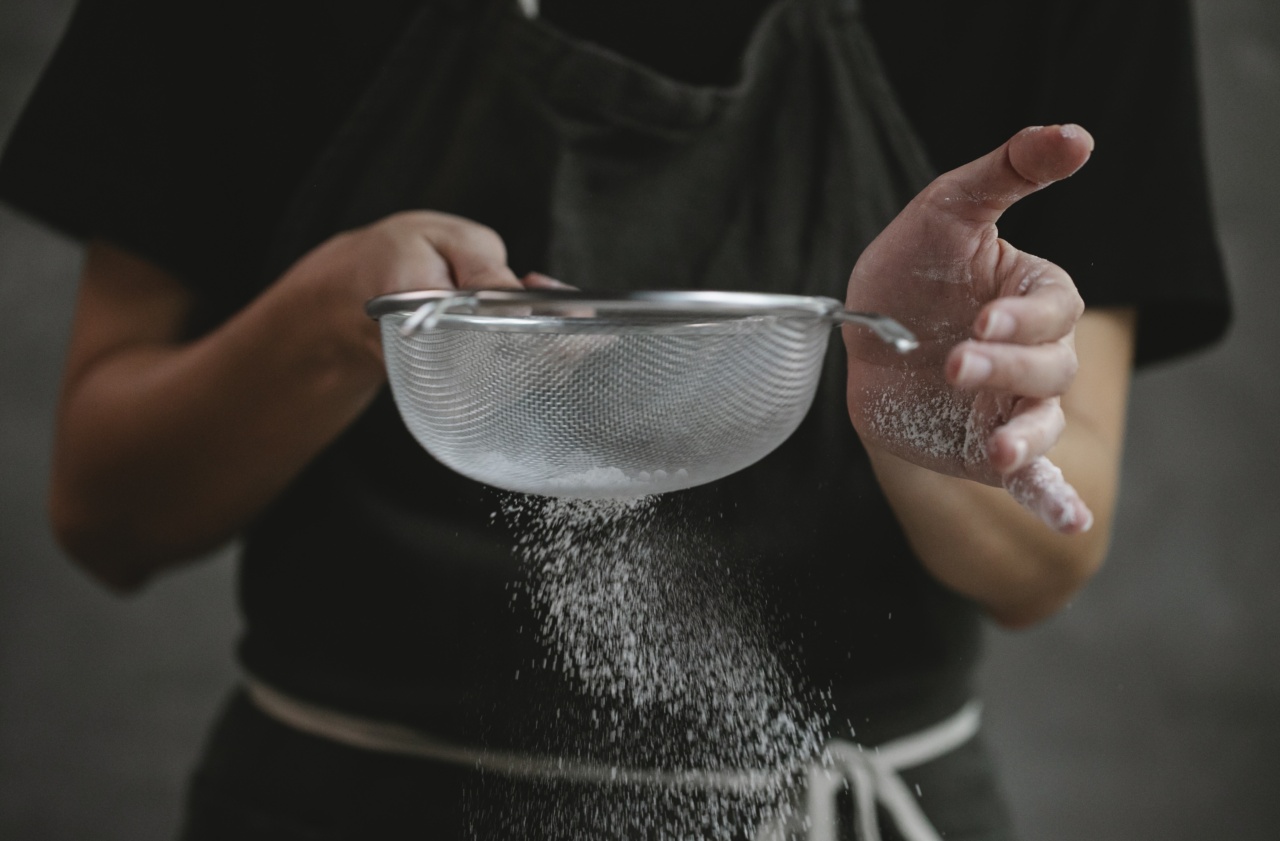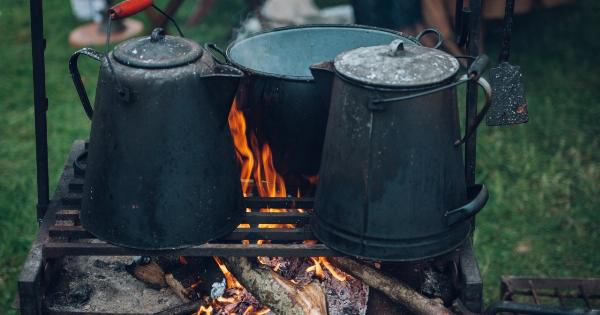When it comes to prostate cancer, making dietary changes might not be able to completely prevent the disease, but it can certainly help in slowing down the progression and preventing it from worsening.
However, sometimes some commonly consumed foods can have the potential to accelerate the growth of cancerous cells. In this article, we will discuss 30 foods that can make prostate cancer worse.
1. Red Meat
Red meat is high in saturated fats which are known to increase inflammation, and higher inflammation levels are linked with worse prostate cancer outcomes.
Studies have shown that consuming higher amounts of red and processed meat on a regular basis could make prostate cancer worse in terms of progression and death rates.
2. Dairy Products
While dairy products are an important source of calcium for building strong bones, they are also high in saturated fats. The high-fat content can increase inflammation levels, possibly leading to the progression of cancerous cells.
According to research, men who ate more than two servings of dairy products per day had a higher risk of prostate cancer recurrence than men who ate less than one serving per week.
3. Fried Foods
Fried foods, such as french fries and chicken, are generally high in unhealthy fats and calories. These unhealthy fats can actually stimulate cancer cells and accelerate their growth.
4. Sugar
High sugar intake can stimulate the insulin production in the body, leading to the growth and progression of prostate cancer cells, especially in men who are obese or have diabetes.
5. Alcohol
Alcohol consumption has been linked to prostate cancer progression and might also make it harder to treat prostate cancer. It’s best to avoid or strictly limit alcohol if you have prostate cancer.
6. Salted Foods
Salted foods, like processed meats and salty snacks, should be limited because salt has been shown to be associated with higher levels of aggression and cancer progression.
High sodium levels can also raise blood pressure levels, leading to other health issues.
7. High Fat Foods
Foods high in unhealthy fats should be avoided in general as they are known to be associated with a variety of health issues.
Foods like fast foods, convenience foods, and baked goods are high in unhealthy fats that can increase inflammation levels, making it harder for the body to fight off cancer cells.
8. Trans Fats
Trans fats are artificially created fats that are used in many processed foods, such as fried foods, margarine, and cookies. These fats are known to increase inflammation and raise cholesterol levels, which can lead to cancer progression.
9. Processed Foods
Processed foods are generally high in salt, sugar, and unhealthy fats. These unhealthy ingredients can have a negative effect on cancer outcomes, as well as overall health.
It’s best to avoid processed foods as much as possible and opt for fresh, whole foods.
10. Soy Products
A large amount of soy consumption can have estrogen-like effects on the body, increasing the growth of prostate cancer cells in some men. Though studies have shown mixed results, it’s best to avoid or limit the consumption of soy products.
11. Caffeine
Caffeine, in moderation, is not considered a major risk factor for prostate cancer. However, caffeine can irritate the bladder and make symptoms worse for men with an enlarged prostate.
12. Certain Herbs and Spices
Some herbs and spices, such as turmeric and ginger, have been shown to have anti-inflammatory properties that can be beneficial in fighting cancer.
However, excessive consumption of other herbs and spices, such as thyme and rosemary, can have a negative effect on prostate cancer outcomes.
13. Raw Cruciferous Vegetables
Raw cruciferous vegetables like broccoli and kale have been found to have cancer-fighting properties.
However, eating these vegetables raw might not be the best option for everyone as they can cause gastrointestinal issues, which might make it harder to absorb crucial nutrients from food.
14. Charred Meat
Charred meat, like grilled steak or chicken, can produce carcinogenic compounds that can potentially lead to the progression of prostate cancer cells.
15. High-Calcium Foods
Calcium is important for healthy bones and teeth, but excessive calcium intake can have negative effects on prostate cancer outcomes. It’s best to avoid calcium supplements and to consume calcium in moderation.
16. Superstitious Beliefs
Some superstitious beliefs, such as drinking the urine of a cow or using shark cartilage supplements, have not been scientifically proven to have any positive effect on cancer outcomes, and can even be harmful to one’s health.
17. Certain Vegetables
Some vegetables, like potatoes, tomatoes, and bell peppers, might not be ideal for men with prostate cancer as they contain high levels of solanine, which can affect the prostate gland.
18. Non-Organic Produce
Non-organic produce can contain harmful pesticides and chemicals that can negatively impact the health, as well as potentially contribute to the progression of cancer cells.
19. Low-Calorie Diets
Low-calorie diets might seem like a good way to manage weight, and while being at a healthy weight is important for overall health, it’s best not to consume too few calories when fighting prostate cancer.
The body needs adequate nutrition to fight off cancer cells and maintain overall health.
20. Herbal Supplements
Herbal supplements can often have unintended consequences, and some can negatively interact with cancer treatments like chemotherapy. Before taking any supplement, it’s best to talk to a medical professional first.
21. Foods with Additives
Processed foods often contain artificial flavorings and additives, which can lead to the progression of cancer cells and should be avoided as much as possible.
22. Certain Seeds
Sesame seeds and pumpkin seeds should be avoided in men with prostate cancer as they contain high levels of phytic acid, which can negatively impact the prostate gland.
23. Canned Foods
Canned foods can contain a high amount of sodium, which can lead to high blood pressure and the progression of cancer cells.
24. Certain Fish
Fish with a high mercury content, such as swordfish and king mackerel, should be avoided in men with prostate cancer as they can lead to mercury accumulation in the body which is harmful to health.
25. Certain Fruits
Fruits with a high glycemic index are not ideal for men with prostate cancer as they can lead to a spike in insulin production, which can lead to the growth and progression of cancer cells.
The glycemic index is the measure of how quickly certain foods cause a spike in blood sugar levels.
26. Certain Beverages
Beverages with added sugars, like soda and energy drinks, should be avoided or limited as much as possible. High sugar intake can lead to insulin resistance, making it difficult for the body to fight off cancer cells.
27. Artificial Sweeteners
The long-term effects of artificial sweeteners on health are still being studied, but some research has shown that they can be linked to the growth and progression of cancer cells.
28. Certain Nuts
Brazil nuts, almonds, and cashews contain high levels of selenium, which in large amounts can have a negative effect on prostate cancer outcomes.
29. High-Calorie Drinks
High-calorie drinks, like milkshakes and smoothies, can contain a high amount of sugar and unhealthy fats, that can lead to the progression of cancer cells.
30. Certain Grains
Sources of refined grains, like white bread and pasta, should be avoided in men with prostate cancer as they can cause a spike in insulin production, leading to the progression of cancer cells.





























